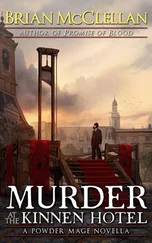Walter hesitated.
“Tell me.”
“Well, I don’t like to rat on my colleagues,” Walter said, “but it seemed to me that the night houseman was behaving strangely.”
—
The night houseman, Paul, was Vincent’s brother—no, Vincent had said he was her half brother, but Walter was unclear on which parent they had in common—and he’d been at the hotel for three months. He’d been living in Vancouver for five or six years but he’d grown up in Toronto, he told Walter, which should have created a bond but didn’t, in part because he and Paul were from different Torontos. They tried to compare favorite Toronto restaurants and nightclubs, but Walter had never heard of System Soundbar, whereas Paul had never heard of Zelda’s. Paul’s Toronto was younger, more anarchic, a Toronto that danced to the beat of music that Walter neither liked nor understood, a Toronto that wore peculiar fashions and did drugs that Walter had never heard of. (“Well, but you know why the raver kids wear soothers around their necks,” Paul said, “it’s not just bad fashion sense, it’s because K makes you grind your teeth,” and Walter nodded knowledgeably without having the slightest idea of what “K” was.) Paul never smiled. He did his job well enough but had a way of drifting off into little reveries while cleaning the lobby at night, staring at nothing while he mopped the floor or polished tabletops. It was sometimes necessary to say his name two or three times, but any sharpness in tone in the second or third repetition would trigger a reproachful, wounded expression. Walter found him to be an irritating and somewhat depressing presence.
On the night of the graffiti, Paul returned from his dinner break at three-thirty a.m. He came in through the side door, and Walter looked up in time to see the way Paul’s gaze fell immediately to the awkwardly placed philodendron and then to Leon Prevant, the shipping executive, who by then was on his second whiskey and reading a two-day-old copy of the Vancouver Sun.
“Something happen to the window?” Paul asked as he passed the desk. To Walter’s ear, there was something faux-casual about his tone.
“I’m afraid so,” Walter said. “Some extremely nasty graffiti.”
Paul’s eyes widened. “Did Mr. Alkaitis see it?”
“Who?”
“You know.” Paul nodded toward Leon Prevant.
“That isn’t Alkaitis.” Walter was watching Paul closely. He was flushed and looked even more miserable than usual.
“I thought it was.”
“Alkaitis’s flight was delayed. You didn’t see anyone lurking around outside, did you?”
“Lurking around?”
“Anything suspicious. This just happened in the last hour.”
“Oh. No.” Paul wasn’t looking at him anymore—another irritating trait; why did he always look away when Walter was talking?—and was staring at Leon, who was staring at the window. “I’m going to go see if Vincent needs the kegs changed,” he said.
—
“What was unusual?” Raphael asked.
“Inquiring about guests like that. How would he even know who was checking in that night?”
“It’s not the worst thing for a houseman to take a look at the guest list, familiarize himself with the lay of the land. Just playing devil’s advocate.”
“Okay, sure, I’ll give you that. But then, the way he looked straight to that point on the glass when he walked in, straight at the potted plant. I just don’t think the philodendron was that obvious,” Walter said.
“It is obviously out of place, to my eye.”
“But is it the first thing you look at? Especially at night? You walk into the lobby from the side door, at night, you look past the double row of pillars, past the armchairs and the side tables, halfway down the glass wall…”
“He does clean the lobby,” Raphael said. “He’d know better than anyone where the potted plants go.”
“I’m not accusing him of anything, to be clear. It’s just something I noticed.”
“I understand. I’ll speak with him. Was there anything else?”
“Nothing. The rest of the shift was completely normal.”
—
The rest of the shift:
By four a.m., Leon Prevant was beginning to yawn. Paul was somewhere back in the heart of the house, mopping floors in the staff corridors. Walter had finished his report and gone through his checklist. He was gazing out into the lobby, trying not to think too much about the graffiti. (What does Why don’t you swallow broken glass signify, if not I hope you die ?) Larry was standing by the door with his eyes half-open. Walter wanted to wander over and talk to him, but he knew Larry used the quiet hours to meditate, and that when his eyes were half-open, that meant he was counting breaths. Walter considered going to talk to Vincent, but it wouldn’t look right for the night manager to linger by the bar while a guest was present, so he settled for a leisurely inspection of the lobby. He straightened a framed photograph by the fireplace, ran a fingertip over the bookshelves to check for dust, adjusted the leaves of the philodendron so that they better covered the paper taped to the glass. He stepped out for a moment into the cool night air, listening for a boat that he knew was not yet en route.
At four-thirty Leon Prevant rose and drifted toward the elevator, yawning. Twenty minutes later, Jonathan Alkaitis arrived. Walter heard the boat long before it came into view, as always, the motor violently loud in the stillness of night, and then the lights on the stern swung over the water as the boat rounded the peninsula. Larry set off for the pier with a luggage trolley. Vincent put away the newspaper she’d been reading, adjusted her hair, reapplied lipstick, and took two quick shots of espresso. Walter put on his warmest professional smile as Jonathan Alkaitis walked in behind his luggage.
In later years Walter was interviewed three or four times about Jonathan Alkaitis, but the journalists always left disappointed. As a hotel manager, he told them, he lived and died by his discretion, but in truth there wasn’t much to tell. Alkaitis was interesting only in retrospect. He’d come to the Hotel Caiette with his wife, now deceased. He and his wife had fallen in love with the place, so when it’d come up for sale he’d bought the property, which he leased to the hotel’s management company. He lived in New York City and came to the hotel three or four times a year. He carried himself with the tedious confidence of all people with money, that breezy assumption that no serious harm could come to him. He was generically well dressed, tanned in the manner of people who spend time in tropical settings in the wintertime, reasonably but not spectacularly fit, unremarkable in every way. Nothing about him, in other words, suggested that he would die in prison.
The best suite had been set aside for him, as always. He was absurdly jet-lagged, he told Walter, and also quite hungry. Could an early breakfast be arranged? (Of course. For Alkaitis, anything could be arranged.) It was still dark outside, but day broke in the kitchen long before sunrise. The morning shift would be arriving by now.
“I’ll just take a seat at the bar,” Alkaitis said, and within minutes was deep in conversation with Vincent, who was, it seemed to Walter, at her brightest and most engaging, although he couldn’t quite make out what they were talking about.
3
Leon Prevant left the lobby at four-thirty a.m., climbed the stairs to his room, and crept into the bed, where his wife was sleeping. Marie didn’t wake up. He’d purposefully drunk one whiskey too many with the thought that this might make it possible to fall asleep, but it was as if the graffiti had opened a crack in the night, through which all his fears flooded in. If pressed he might have admitted to Marie that he was worried about money, but worried wasn’t strong enough. Leon was afraid.
Читать дальше












